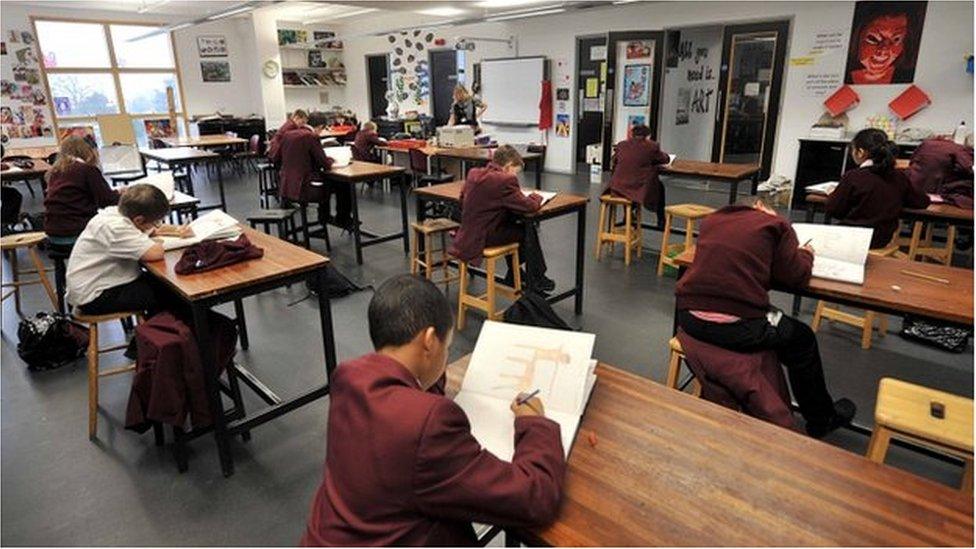Body cams for teachers cannot be dismissed, union says
- Published

The idea of teachers wearing body cameras in Welsh classrooms cannot be dismissed, the National Union of Teachers has said.
Its research shows staff are victims of more than 1,500 physical and verbal attacks by pupils every year.
Two schools in England are taking part in a three-month trial where all teachers are wearing police-style body cameras to stop pupil disruption.
One teacher said there was one problem pupil in "most classes".
"I've been stabbed with a pencil, I've had my fingers slammed in a door, I've had a child bite me, I've had the backs of my hands clawed with fingernails, furniture thrown at me, kicked, punched.
"It sounds horrendous when you say it all in one list but those things are happening fairly regularly," the teacher said anonymously to S4C's programme.
"It's getting worse year by year, it's getting harder to manage year by year, it's getting more distressing year by year, both for the pupils and the staff."
Owen Hathway of the National Union of Teachers (NUT), said about eight "verbal or physical" assaults took place against teachers every day.
While he said the union could not "completely dismiss" the use of body cams, he said they could also prove to be a hindrance.
"What we need to ensure is that whilst this sort of technology may be able to safeguard teachers and pupils, it's perhaps a bit too intrusive at the moment, and there are other avenues to explore that could help develop better relationships in the class and better levels of discipline in the class," he said.
"I think first and foremost we know that the schools with the best level of discipline are those who have good relationships between schools and the communities."
While he said the idea was "something we have to be ready to embrace", he was cautious about its implementation.
"It shouldn't be a case of being an intrusive platform for school leaders to spy potentially on teachers or pupils, but as a way of safeguarding pupils and teachers and working with the profession about how it's developed," Mr Hathaway added.
Educational well-being consultant Siriol Burford does not think they should be used in every classroom.
"I think that there are certain areas in each school where there are trained staff who will help children, or young people, who might have emotional or behavioural difficulties and in that situation I would say that cameras could be an important aspect of that schools life," she said.
"However, I think that if you introduce cameras in all lessons and classes then suddenly you're dealing with trust issues, and I think that lessons ultimately and the relationship between pupils and teachers are based on trust."
- Published16 February 2015
- Published27 June 2016
- Published15 April 2015